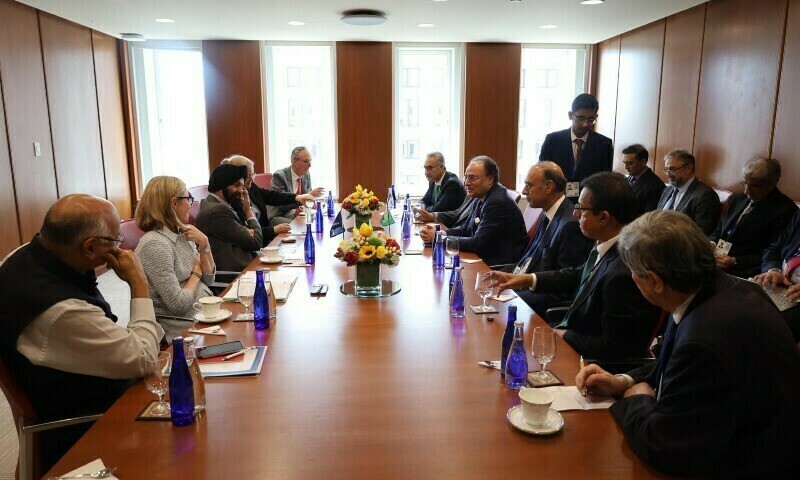WASHINGTON: Global finance leaders came to Washington this past week seeking clarity on what it would take to get some relief from President Donald Trump’s tariff assault and on just how much pain it will bring to the world economy.
Most headed home with more questions than answers.
Many participants in the International Monetary Fund (IMF) and World Bank Spring Meetings had a sense that Trump’s administration was still conflicted in its demands from trading partners hit with his sweeping tariffs.
During the whirlwind week, many finance and trade ministers sought to meet US Treasury Secretary Scott Bessent and other key Trump administration officials, to no avail.
Foreboding persists as financial leaders unable to meet Trump admin officials
Those that did were often told to be patient — even as the clock steadily ticks down on the 90-day pause Trump had granted on the steepest levies.
“We know that they think — that it won’t be that bad,” said Polish Finance Minister Andrzej Domanski.
“They think it’s a short-term pain, long-term gain. And I’m afraid that we’ll have short-term pain, long-term pain.”
The Trump administration’s most substantial trade negotiations during the week were with Japan and South Korea, but the results were inconclusive as Bessent cited “productive” talks with both countries.
The IMF took a slightly more optimistic view of the economic fallout from the US tariffs, slashing growth forecasts for most countries in its World Economic Outlook but stopping far short of predicting recessions — even for the US and export-dependent China.
IMF Managing Director Kristalina Georgieva acknowledged that member countries were anxious about the uncertainty shock to a global economy buffeted by pandemic, inflation and wars but held out hope that trade negotiations would ease the tariff strains.
Several finance officials told Reuters that odds of recession were higher than the IMF’s 37 per cent chance, citing private sector forecasts.
Debt risk rises
Eric LeCompte, executive director of Jubilee USA Network, a faith-based nonprofit group advocating debt relief, said that the IMF’s forecasts were clearly aimed at preventing market panic, even as officials in private meetings expressed concerns about new debt crises emerging.
“It was a do-nothing kind of week,” LeCompte said, adding that debt discussions were inconclusive and overshadowed by tariff talks.
Reza Baqir, a former Pakistan central bank governor who now heads sovereign debt advisory at Alvarez & Marsal, said: “For many developing countries, especially in the Global South, there is a real sense of despair that the agenda on Financing for Development is really not center-stage. And who is going to be there to champion that debate?”
World Bank chief economist Indermit Gill also sounded an alarm on rising debt levels for emerging markets, noting that tariffs had prompted a sharp slowdown in trade and foreign direct investment that are crucial to developing country growth.
No US withdrawal
Policymakers did breathe a sigh of relief when Bessent expressed US support for the IMF and the World Bank, declaring that they have “enduring value” but criticising their “mission creep” into climate, gender and equality issues.
Participants at the meetings, along with financial markets, were encouraged by Bessent’s comments early in the week that US tariffs on Chinese goods and vice versa were unsustainable, suggesting a deal to ease them could be reached soon.
But China denied Trump’s assertions that tariff negotiations were underway with Beijing, adding to the confusion over tariffs.
Published in Dawn, April 28th, 2025


